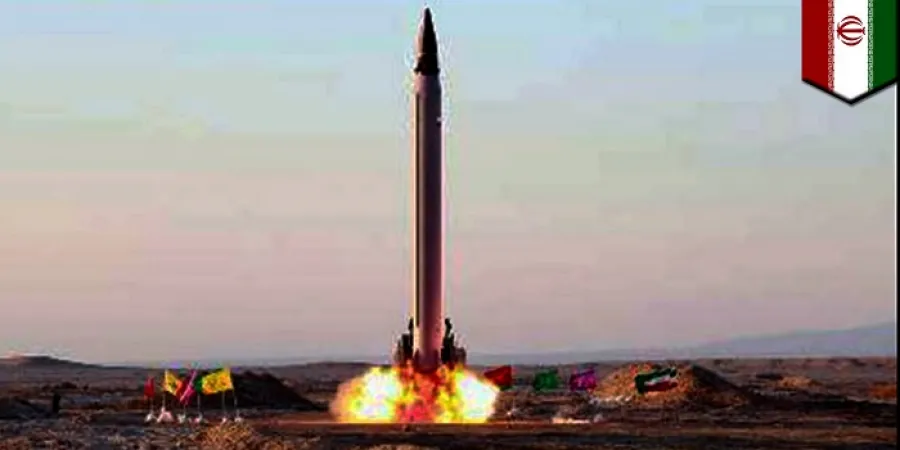New Iran Sanctions Expose Illicit Networks
The US Department of Treasury sanctions Iranian defense officials and a China-based network for supporting Iran’s ballistic missile program and Syria’s chemical weapons program
Ami Rojkes Dombe
| 29/05/2017
The US Department of the Treasury designated seven persons and entities for ties to Iran’s ballistic missile program earlier this month. The sanctions reveal new evidence pointing to Iran’s support for entities involved in Syria’s chemical weapons program, and continuing evidence of illicit procurement networks that aid Tehran’s ballistic missile development.
Morteza Farastpour, a target of the actions, is a high-ranking Iranian defense official responsible for coordinating "the sale and delivery of explosives and other materiel" from Iran’s Defense Industries Organization (DIO) to Syria’s Scientific Studies and Research Center (SSRC). Just last month, the US Department of the Treasury sanctioned 271 individuals working for SSRC, noting that the center is "responsible for developing and producing non-conventional weapons and the means to deliver them” and that the individuals designated “worked in support of SSRC’s chemical weapons program."
Iran’s military commanders have previously touted their country’s role in bolstering Syria’s missile industry, but the designation of Farastpour now raises questions about Iran’s role – through entities like DIO, which is a subsidiary of the Iranian defense ministry – in supporting Syrian President Bashar al-Assad’s chemical weapons program.
Additional targets of the designation include Rahim Ahmadi, an Iranian defense official who "coordinates … ballistic missile flight tests," and Matin Sanat Nik Andishan, an Iranian company engaged in the illicit procurement of material and technology needed for ballistic missiles. Both were linked to previously sanctioned Iranian defense ministry affiliates that produce ballistic missiles. Remarkably, these affiliates are slated for delisting by the European Union by 2023 or earlier, pursuant to the 2015 nuclear accord.
A non-Iranian target of the designation was the Chinese Ruan Runling network, revealing that the nuclear deal has done nothing to shut down key foreign hubs feeding Tehran’s missile industry. Foreign sources were critical to the development of Iran’s ballistic missile program in the 1980s and 1990s, and Chinese munitions have also helped diversify Iran’s inventory of anti-ship missiles, among others. The designation proves that Iran continues to value such networks today.
According to analysts at FDD, the US Treasury’s latest sanctions will not stop Iran from aiding the Syrian regime or from developing a robust ballistic missile arsenal. But the measure served two important purposes. It signaled to Tehran that even though Washington has temporarily waived sanctions pursuant to the nuclear deal, it has not stopped tracking a range of Iranian illicit activities. The new sanctions also remind companies that are considering investment in Iran of the very real risks involved in doing business with a regime that not only engages in human rights abuses and illicit missile technology procurement, but also supports a war criminal responsible for chemical weapons attacks against civilian populations.
The US Department of Treasury sanctions Iranian defense officials and a China-based network for supporting Iran’s ballistic missile program and Syria’s chemical weapons program
The US Department of the Treasury designated seven persons and entities for ties to Iran’s ballistic missile program earlier this month. The sanctions reveal new evidence pointing to Iran’s support for entities involved in Syria’s chemical weapons program, and continuing evidence of illicit procurement networks that aid Tehran’s ballistic missile development.
Morteza Farastpour, a target of the actions, is a high-ranking Iranian defense official responsible for coordinating "the sale and delivery of explosives and other materiel" from Iran’s Defense Industries Organization (DIO) to Syria’s Scientific Studies and Research Center (SSRC). Just last month, the US Department of the Treasury sanctioned 271 individuals working for SSRC, noting that the center is "responsible for developing and producing non-conventional weapons and the means to deliver them” and that the individuals designated “worked in support of SSRC’s chemical weapons program."
Iran’s military commanders have previously touted their country’s role in bolstering Syria’s missile industry, but the designation of Farastpour now raises questions about Iran’s role – through entities like DIO, which is a subsidiary of the Iranian defense ministry – in supporting Syrian President Bashar al-Assad’s chemical weapons program.
Additional targets of the designation include Rahim Ahmadi, an Iranian defense official who "coordinates … ballistic missile flight tests," and Matin Sanat Nik Andishan, an Iranian company engaged in the illicit procurement of material and technology needed for ballistic missiles. Both were linked to previously sanctioned Iranian defense ministry affiliates that produce ballistic missiles. Remarkably, these affiliates are slated for delisting by the European Union by 2023 or earlier, pursuant to the 2015 nuclear accord.
A non-Iranian target of the designation was the Chinese Ruan Runling network, revealing that the nuclear deal has done nothing to shut down key foreign hubs feeding Tehran’s missile industry. Foreign sources were critical to the development of Iran’s ballistic missile program in the 1980s and 1990s, and Chinese munitions have also helped diversify Iran’s inventory of anti-ship missiles, among others. The designation proves that Iran continues to value such networks today.
According to analysts at FDD, the US Treasury’s latest sanctions will not stop Iran from aiding the Syrian regime or from developing a robust ballistic missile arsenal. But the measure served two important purposes. It signaled to Tehran that even though Washington has temporarily waived sanctions pursuant to the nuclear deal, it has not stopped tracking a range of Iranian illicit activities. The new sanctions also remind companies that are considering investment in Iran of the very real risks involved in doing business with a regime that not only engages in human rights abuses and illicit missile technology procurement, but also supports a war criminal responsible for chemical weapons attacks against civilian populations.



